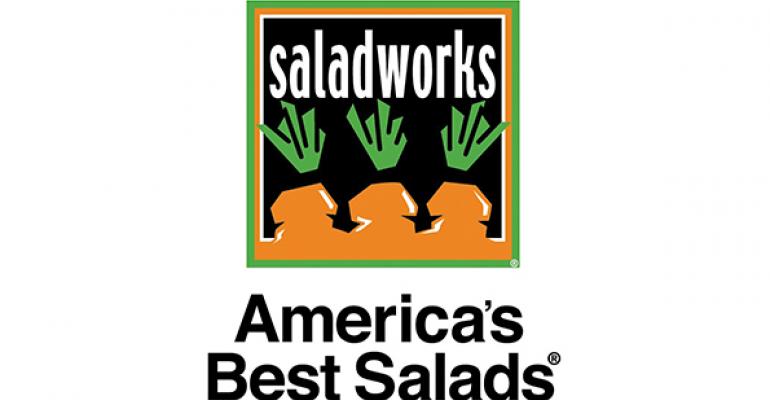Saladworks LLC filed for Chapter 11 bankruptcy protection on Tuesday, saying it was necessary for the company to be sold or restructured amid lawsuits from the salad concept’s minority owner and its bank.
The Conshohocken, Penn.-based franchise, which has more than 100 locations, said the day-to-day operations of the business won’t be affected, and that the company hopes to get through bankruptcy quickly.
“This process is the best way to maximize value for our franchisees, as well as other stakeholders, and allow our operations to emerge from bankruptcy quickly,” said John Scardapane, Saladworks’ CEO, in a statement. The filing was at the U.S. Bankruptcy Court in Delaware.
Saladworks has hired SSG Advisors to help market the company for a possible sale, according to the bankruptcy filing. But it also suggests that bankruptcy could help the company restructure, “free from the value-destructive, distracting litigation in Pennsylvania and Delaware.”
Saladworks was founded in 1986, and has more than 100 locations with another 80 units in development, according to the company.
According to bankruptcy filings, about 70 percent of the company’s revenue comes from franchise royalties. Another 27 percent comes from administrative fees received from its food distributor, US Foods, as well as other vendors, for the right to sell and distribute food and other supplies to the chain’s operators.
According to the bankruptcy document, the company has $8 million in unsecured debt, including $2.5 million to Metro Bank.
Scardapane owns 70 percent of the company. In 2008, he sold 30 percent of the company to Vernon Hill, founder of Commerce Bancorp.
In 2013, Hill resigned from Saladworks’ board of directors and exercised his right to have the company buy back his shares for $7.8 million. In October, he filed a lawsuit against the company in Delaware seeking that payment. That lawsuit also charges Scardapane with wasting company assets and “unjust enrichment.”
Saladworks disputes those claims. Bankruptcy documents show that Hill’s total claim is worth $8.9 million.
In addition, Metro Bank in December filed three lawsuits in Pennsylvania seeking the $2.5 million it says Saladworks owes the bank. It received judgments in two lawsuits totaling $1.9 million.
But, according to bankruptcy filings, a company called WS Finance LLC, which Saladworks believes is owned by Hill, bought the Metro Bank debt and is now listed as the creditor.
In January, WS Finance sent a writ of garnishment to Saladworks’ bank, TD Bank, which has since frozen the company’s account.
Saladworks began looking for a buyer in 2013, after Hill exercised his right to have the company buy back shares. The company hired a financial adviser and investment banker to sell the company to satisfy that request.
The company said in bankruptcy documents that it had several parties interested in buying the chain, but the dispute with Hill and the bank have prevented a sale from taking place.
The company also says in bankruptcy documents that the litigation has had “a negative impact” on its operations “by impairing its ability to sell additional franchises and increase its footprint in the marketplace.”
Franchisees are apparently “unwilling to move forward with the opening of their Saladworks store until these issues are resolved.”
Contact Jonathan Maze at [email protected]
Follow him on Twitter: @jonathanmaze


